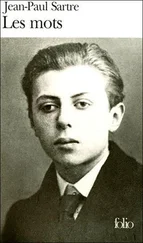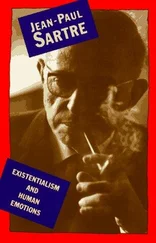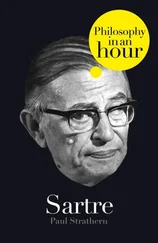At the end of that week she could no longer bear being shunned by her son. She went to his room, hesitant at first, and switched on the light. He didn’t move and kept his head buried in the pillow. Then he peeked at her furtively, his beautiful black eyes full of tears. He asked her in a hoarse voice, “What do you want?” then quickly hid his face in the pillow and cried loudly.
Standing at his bed, she replied, “I want to know what’s wrong with you?”
He told her, “You know.”
“I want to hear it from you,” she insisted.
She sat on the bed and toyed with her diamond ring, her head bent. He turned to her, “You do know, don’t lie.”
She repeated, “I am not lying, but I want to hear it from you.”
He shouted his reply, hardly able to breathe, “Hear what? Do you want me to tell you what you were doing with him?”
Munira al-Hafez was unable to persuade him. She was embarrassed by his demeanor but kept on trying to talk with him. She finally said, “When you grow up you’ll understand,” but he interrupted her, blurting out without looking at her, “I am old enough, old enough!”
“My son. .,” she said, but she was overcome by a crying fit and couldn’t finish her sentence. He hastened to repudiate their relationship, “I’m not your son. I’m not your son.”
“How can you say that? You are my son. You are old enough to differentiate between a husband and a stranger. He is my husband and your father,” she said. The boy was still in denial.
“He’s not my father, I don’t know him.”
Still his mother insisted, “You don’t have the right to say that. He is your father.” Abd al-Rahman kept on denying his connection to his parents until a strong crying fit interrupted him and he hid his face with the feather pillows.
This exchange between mother and son went on for a long time, with the boy denying the paternity of his parents and asking to be returned to his biological parents. “You’re not my parents, you’re criminals, you took me away from my real parents and you must return me to them.”
Nothing Munira al-Hafez said could convince him or stanch his anger, yet she kept at it, “It is natural, accepted by religion and life in general. Ask around you — the servants, anyone. It’s normal.”
Still he remained hostile, “Don’t lie. The servants will talk about you the way they talk about Rujina.”
The mother felt defeated and said to him, “Do you compare me to Rujina?”
“You are the same,” he said, “I don’t want to stay here. I want to leave. What do you want from me?”
His mother was furious. She asked, “Even if we were not your parents, how do you think you were brought into this world?”
He replied, “Through some other means, different from this shameful way.”
Finally, sadly, she was convinced that there was no talking to him. She left his room and went downstairs completely shattered. Overwhelmed, she soon broke down sobbing. When her husband returned from work and saw her in that state, he was very angry and immediately went to his son’s room. He tried to talk to him, but in vain. He tried to convince him but failed. The boy did not utter a word in his father’s presence.
39
The philosopher’s life thereafter was in some ways a reaction to what he considered his mother’s false purity. He was compelled to seek out all of the basest feelings and most sordid practices. In the Jewish quarter, a rather intimidating place for him, he found many things that fed his passions and inflamed his imagination and emotions. He went there with the servants — the groom, the carriage driver, and the gardener. It was a kind of purgative, a certain attachment to wild, tainted beauty. He saw beauty in the cats on garbage dumps and stray dogs covered with mud on rainy days. He liked watching the rats come out of the gutters and the donkeys driven by ruffians, and he found it all very attractive. He sought those sights during his evening walks in his grandfather’s opulent gardens that stretched to the surrounding villages. He was searching for a balance in his life and a way that would teach him how to weigh matters and judge others.
The pure woman in Abd al-Rahman’s life was replaced by dissolute women, the innocent woman by experienced women. He abandoned his imagination to obscene feminine traits, making scullery maids the major players in his life. He shared his mother’s disgust for his father’s addiction to alcohol, but he was disgusted with both of them for their bedroom relationship. He found the drunkenness of the carters and the obscene relationship between the carriage driver Saadun and the housemaid Rujina purer, deeper, and stronger than that of his parents. In his eyes Rujina was the ideal feminine person, despite her sluttish behavior. He became attached to her; she represented sin by excellence. All the others — the teamsters, drivers, thieves, servants, watchmen, and especially the gutter cleaners — he felt were the greatest beings to have emerged from the dregs of the earth. He contrasted his parents’ clean clothes and elegance with the filthiness of the workers and concluded that their squalor was due to idleness. He felt an odd sexual attraction to what he saw as their mysteries and oddities. He saw them as primitive animalistic creatures, nobler somehow than his sanitary family members.
40
Abd al-Rahman’s mother had a quiet beauty. She was fair skinned, white as cotton, but she had now lost much of her attractiveness and looked sad because of her son and his odd behavior. She was desperate. She loved her husband and never thought of any other man. She would have lived as the sole mistress in this big house were it not for the presence of her motherin-law, a haughty Turkish woman who shared her authority. She made great concessions in order to live with her kind husband, who respected his parents and listened to their advice. He, too, loved his wife. Under the spell of her beauty, he liked to spend time in her company. She spent most of her days, especially the afternoons, in the living room near the sunny window, working on her embroidery.
As a child Abd al-Rahman used to walk behind his mother or sit facing her on his father’s lap, admiring her clear eyes that were so full of energy and her beautiful clothes. Much of that disappeared after she became ill and her beauty faded.
41
Abd al-Rahman’s relationship with his mother turned harsh, and he responded rudely to her affection and entreaties. The sight of the intimate life of his parents had warped the philosopher’s behavior, his individual weaknesses, and his passive-aggressive inclinations. The result was frequent escapades, chaotic sexual conduct, much pain, and a sustained attitude of revolt. He was haunted by nightmares that continued throughout his adolescence. He would see himself dismembered and left lying on asphalt streets. His childhood was transformed into a valley of tears, dissatisfaction, and crying every time his mother spoke to him. He attacked his father with a kind of hysteria at the slightest sign of affection, and their relationship became very strained. He had an innate inclination for existentialism and so gradually turned into a drunk philosopher, a Don Juan who changed partners frequently, a hedonist who enjoyed life more than he would have had he chosen the moral path, as had his peers among the aristocratic families.
42
The first woman to awaken his sexual instincts was Rujina the maid. She was cleaning the marble stairs one morning. He stood in front of her and raised his arms for her to carry him. She squeezed his head between her breasts, where he smelled her natural sexuality, then put him down and caught him gently between her thighs. The experience left him dizzy. He sat down on a couch in the living room and closed his eyes for a few minutes. When he opened them he saw Rujina sweeping the floor, her dark, full thighs purposely uncovered. He was overcome with a deep sexual desire that drove him upstairs to his room. When he reached the door he took another look at the lower floor and saw Rujina’s dark, lustful eyes staring at him. The fullness of her breasts was evident from her cleavage, and her dress was pulled up above the knees. She winked at him as he went into his room.
Читать дальше












